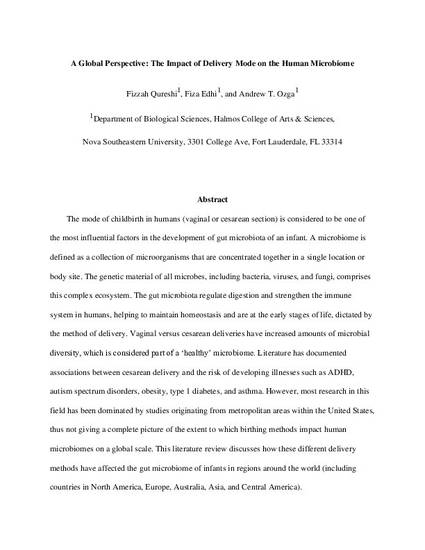
The mode of childbirth in humans (vaginal or cesarean section) is considered to be one of the most influential factors in the development of gut microbiota of an infant. A microbiome is defined as a collection of microorganisms that are concentrated together in a single location or body site. The genetic material of all microbes, including bacteria, viruses, and fungi, comprises this complex ecosystem. The gut microbiota regulate digestion and strengthen the immune system in humans, helping to maintain homeostasis and are at the early stages of life, dictated by the method of delivery. Vaginal versus cesarean deliveries have increased amounts of microbial diversity, which is considered part of a ‘healthy’ microbiome. Literature has documented associations between cesarean delivery and the risk of developing illnesses such as ADHD, autism spectrum disorders, obesity, type 1 diabetes, and asthma. However, most research in this field has been dominated by studies originating from metropolitan areas within the United States, thus not giving a complete picture of the extent to which birthing methods impact human microbiomes on a global scale. This literature review discusses how these different delivery methods have affected the gut microbiome of infants in regions around the world (including countries in North America, Europe, Australia, Asia, and Central America).
Available at: http://works.bepress.com/andrew-ozga/43/
